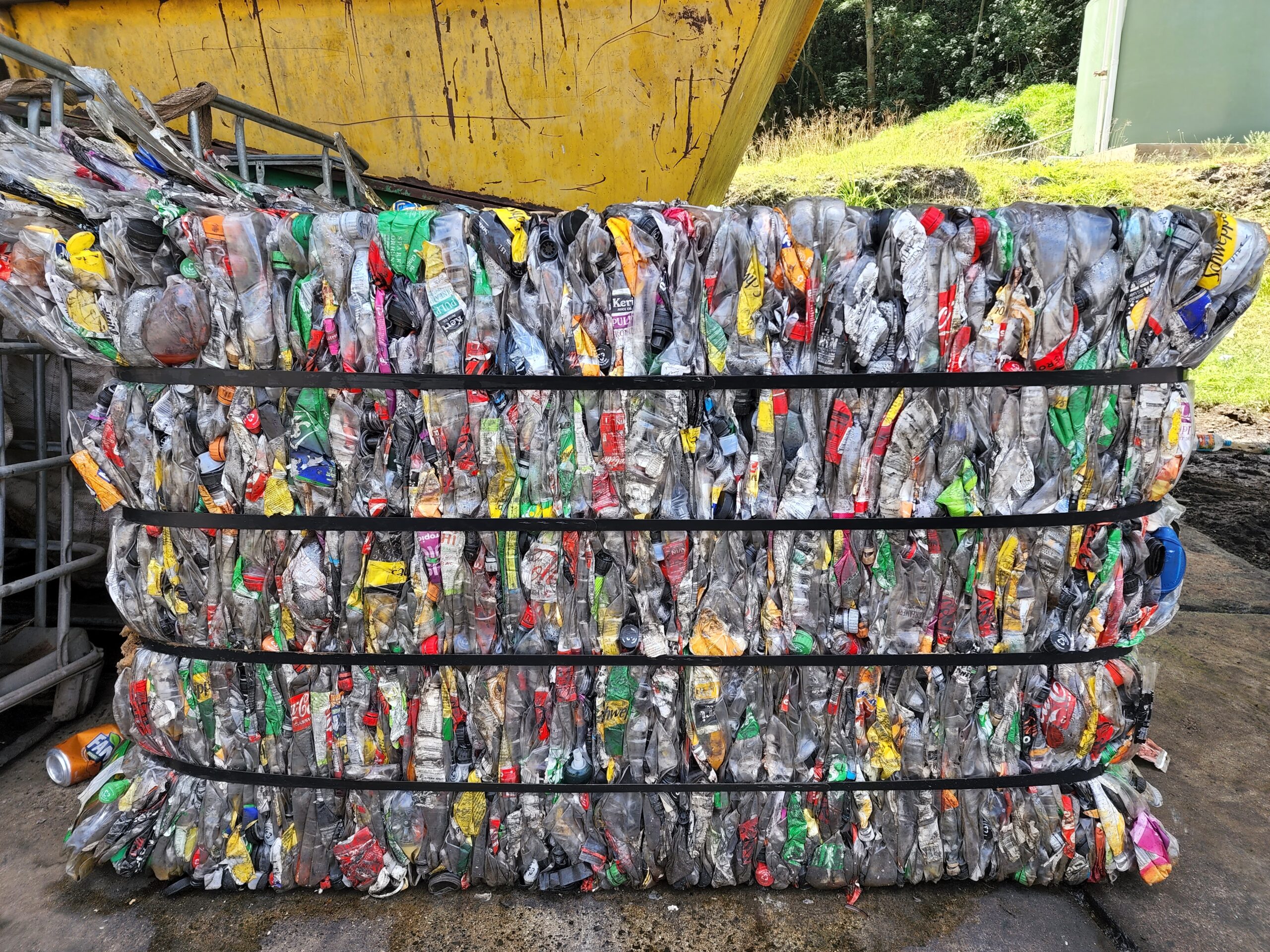Te Ipukarea Society: Earth Day 2024- Cook Islands champions plastic reduction goals
Saturday 20 April 2024 | Written by Te Ipukarea Society | Published in Environment, National

A bale of recycled plastic bottles. TIS/24041930
This coming Monday marks the 54th year recognising ‘Earth Day’. This is an event celebrated on April 22 every year to raise awareness on issues important to the health of our environment.
This year’s theme is “Planet vs plastic”. This aligns well with current Cook Islands initiatives.
Earth Day 2024 is promoting a 60 per cent reduction in the production of all plastics by 2040. This is a welcomed and ambitious goal that sits within our National Sustainable Development Agenda’s goal of having zero waste in the Cook Islands by 2045.
The Cook Islands has become a key voice in the current negotiations to develop a comprehensive and legally binding plastics pollution treaty. The first International Negotiation Committee meeting for this treaty was at the end of 2022 in Uruguay. Key representatives from Cook Islands Government, as well as our NGO Te Ipukarea Society, are currently attending the 4th meeting in Canada.
This year’s Earth Day theme also aligns well with the current R.E.S.P.O.N.S.E project led by the National Environment Service with support from Te Ipukarea Society. This project aims to significantly reduce the amount of single use plastic being generated by the food and beverage sector in the Cook Islands.
Despite our relatively small population, a Cook Islands 2020 Waste Audit found 1.5 million plastic bottles were imported over a one year period.
Thankfully we have heard plans that ‘Coca Cola’ will be trialling a project that funds the exporting of some single use plastics back to New Zealand for recycling. The trial will test the quality of single use plastics we send to New Zealand, in that it is clean and not degraded. So now is a good time to start practicing the art of rinsing out our plastic bottles before putting it out for recycling.
Ensuring we rinse out other waste items before we bin or recycle it should also be practiced to improve the quality of recyclable items we send back to New Zealand, as well as reduce the chance of rats and mice ending up at the landfill, keeping the site clean for our waste management.
As well as being clean about our waste, other initiatives to practice in recognition of Monday’s Earth Day could include remembering your own reusable coffee cup to use at the coffee shop and reusable bags to use whilst shopping for groceries.
One of the more significant sources of single use plastic from shopping is the smaller bags you use for your onions, potatoes, apples, and other fruits and vegetables. So including smaller bags for your fruit and veges along with your reusable shopping bags would be a big help in reducing plastic waste.
If you are currently on a fitness challenge, consider turning your 2.5 litre plastic juice bottles into weights by filling them with water or sand to do circuits of squats, arm curls and lunges.
Let’s cherish this limited edition Earth; unfortunately, there are no exchanges or refunds!
For more information on additional ideas on how to take action this Earth Day check out www.earthday.org.




















































